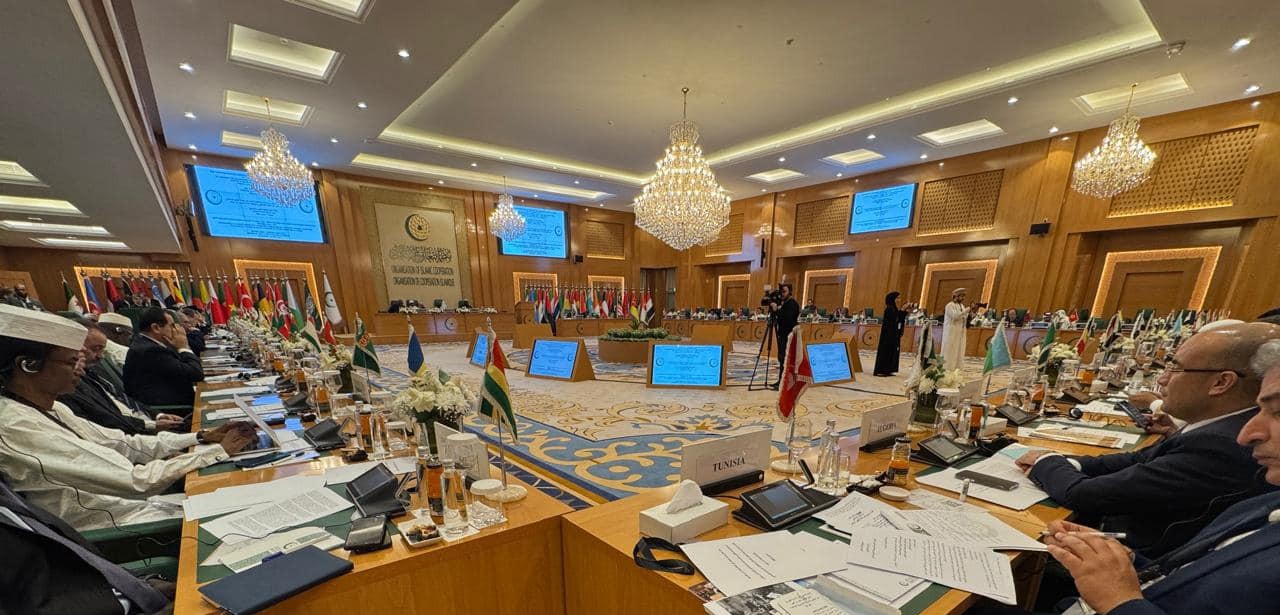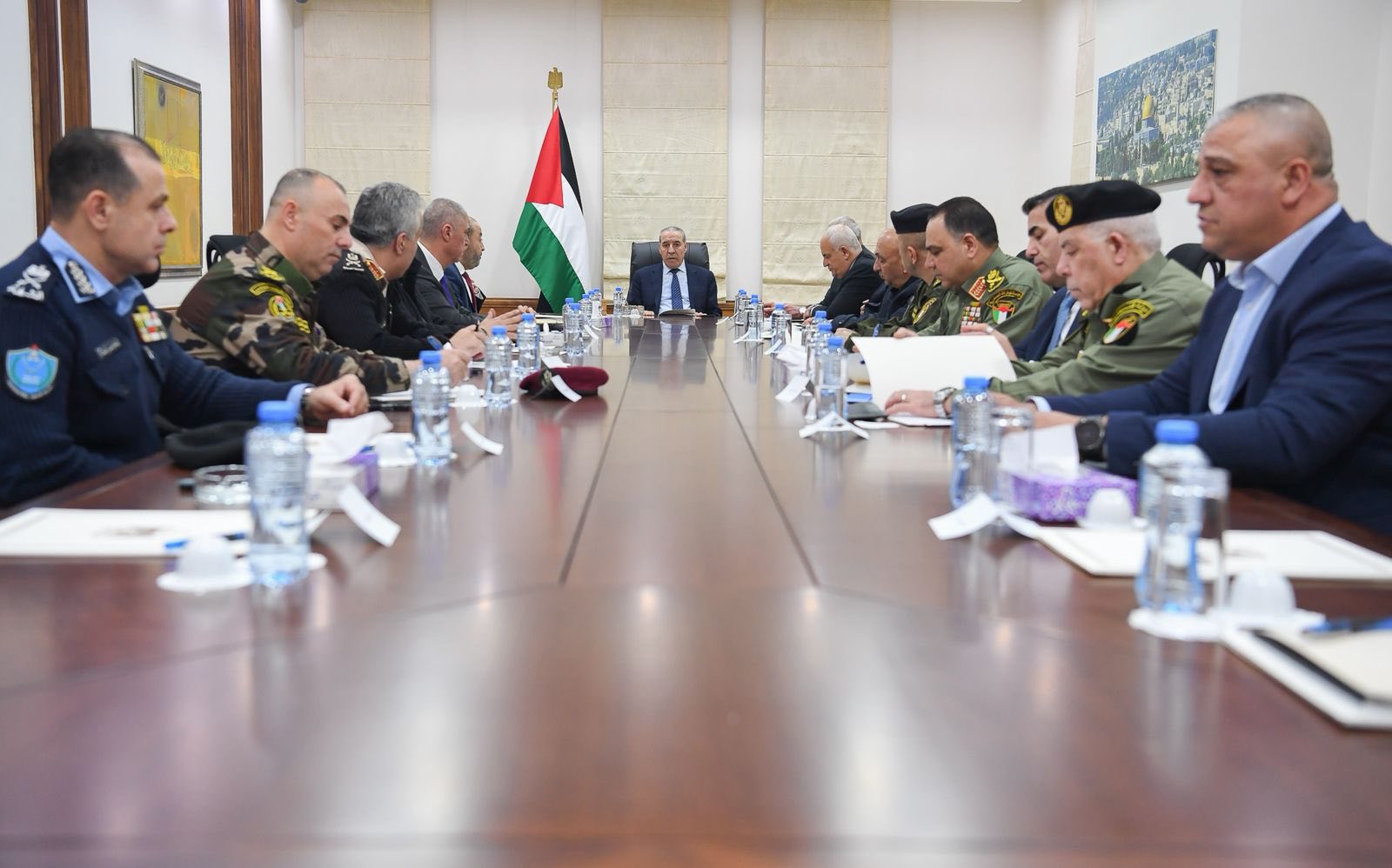JEDDAH, March 8, 2025 (WAFA) – The Council of Foreign Ministers of the Organization of Islamic Cooperation (OIC) has reiterated the centrality of the Palestinian cause for the Muslim world and reaffirmed unwavering support for the legitimate rights of the Palestinian people, including self-determination, independence, and sovereignty over their land.
In its final communiqué issued at the conclusion of the 20th extraordinary session held at the OIC headquarters in Jeddah, the council condemned the ongoing Israeli aggression against Palestinians and attempts to forcibly displace them. The meeting was convened at the request of Saudi Arabia, Palestine, Iran, and Pakistan.
The council endorsed the vision of President Mahmoud Abbas, emphasizing the importance of Palestinian national unity under the framework of the Palestine Liberation Organization (PLO) as the sole legitimate representative of the Palestinian people. It reaffirmed all OIC resolutions on Palestine and Jerusalem, including decisions made at the joint Arab-Islamic summit in Riyadh last November.
Reaffirming its commitment to a just and lasting peace in the Middle East, the council stressed the need for Israel, as the occupying power, to fully withdraw from all Palestinian territories occupied since 1967, including the West Bank, East Jerusalem, and Gaza. It underscored the right of Palestinian refugees to return and receive compensation in accordance with UN resolutions, particularly Resolution 194.
The OIC called for the immediate implementation of a permanent ceasefire in Gaza, ensuring the return of displaced Palestinians, the opening of all crossings, and the delivery of sufficient humanitarian aid across the besieged territory.
The council also held Israel fully responsible for the failure of peace efforts due to its continued violations and refusal to fulfill its commitments. It strongly rejected any attempts to forcibly displace the Palestinian people from their land, labeling such actions as ethnic cleansing, a grave violation of international law, and a crime against humanity under the Rome Statute of the International Criminal Court.
The OIC denounced Israel’s illegal settlement expansion, home demolitions, land seizures, and military incursions into Palestinian cities and refugee camps. It warned that Israel’s attempts to impose sovereignty over parts of the West Bank, including East Jerusalem, could lead to an unprecedented escalation in the region.
The council supported the formation of an administrative committee under the Palestinian government to manage Gaza’s affairs during a transitional period. It emphasized the need for a unified Palestinian administration to oversee security, reconstruction, and humanitarian relief efforts in Gaza, in line with the geographical and political unity of Palestine.
The OIC called on the international community to hold Israel accountable for war crimes and genocide committed against the Palestinian people, urging legal action to ensure justice for victims. The council also welcomed Egypt’s reconstruction plan for Gaza, supported by the World Bank and the UN, and called for an international donors' conference in Cairo to accelerate Gaza’s recovery.
Additionally, the council urged all countries to impose sanctions on Israel to force its compliance with international law and to halt military support, including arms and ammunition sales. It stressed that Israel’s ongoing aggression in Gaza is directly linked to external military aid.
The OIC reaffirmed its demand for the immediate release of Palestinian tax revenues withheld by Israel and called on the UN Security Council to enforce its resolutions, including Resolutions 2735 (2024), 2728 (2024), and 2334 (2016).
The council condemned Israeli ministers’ extremist and racist statements, as well as the escalation of settler violence against Palestinians. It called for legal action against perpetrators and for intensified efforts to combat illegal settlement activities.
The OIC also urged the International Criminal Court to expedite investigations into Israeli war crimes and crimes against humanity, bringing perpetrators to justice. It reaffirmed the need to implement the advisory opinions of the International Court of Justice and called for additional measures to hold Israel accountable on the global stage.
The OIC emphasized the necessity of strengthening Palestinian resilience by providing increased humanitarian aid and economic support. It called for additional financial assistance to the Palestinian government and the activation of the Islamic financial safety net.
The council urged all nations to recognize the State of Palestine and take decisive action against Israel’s occupation, ensuring that Palestinians can exercise their full rights to sovereignty, independence, and self-determination.
M.N










